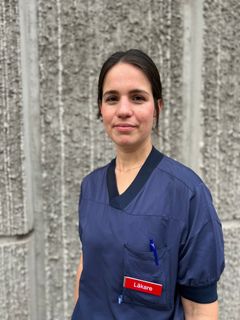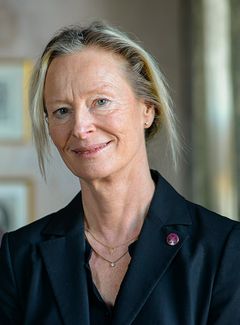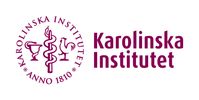Very early medication abortion is effective and safe
6.11.2024 23:00:00 CET | Karolinska Institutet - English | Pressmeddelande
Clinics and hospitals currently defer medication abortion until ultrasound confirms a pregnancy inside the uterus. However, a large international study led by researchers from Karolinska Institutet now indicates that treatment can be equally effective and safe even before the sixth week of pregnancy. The study is published in The New England Journal of Medicine.
35,550 abortions took place in Sweden in 2023, over 60 per cent of them before the end of the seventh week of pregnancy. Often, the procedure is held off until intrauterine pregnancy is confirmed by vaginal ultrasound to rule out the possibility of an ectopic pregnancy, in which the embryo attaches outside the uterus, usually in the fallopian tubes. An ectopic pregnancy is not terminated by a medication abortion and can be life-threatening for the woman. Ultrasound reveals a pregnancy in week five to six.
“Women often find out very early if they’re pregnant, and a majority also know if they want a termination and if so, want it to take place as quickly as possible,” says the study’s first author Karin Brandell, gynaecologist at Karolinska University Hospital and doctoral student at the Department of Women’s and Children’s Health, Karolinska Institutet. “Observational studies have produced contradictory results as regards effectiveness, so we wanted to study if very early abortion is just as effective and safe as waiting.”
Women from nine countries
The VEMA (Very early medical abortion) study included over 1,500 women at 26 clinics in nine countries who requested an abortion before ultrasound was able to confirm intrauterine pregnancy. They were randomly assigned to either a delayed abortion once pregnancy could be confirmed in the uterus (in week 5 to 6) or to early abortion (in week 4 to 6). Both groups received two drugs – mifepristone and misoprostol.
At the start of the study, all participants were up to six weeks pregnant and presented no symptoms of ectopic pregnancy (e.g. abdominal pain or bleeding) or risk factors for such a pregnancy (e.g. pregnancy despite a coil or previous ectopic pregnancies). The outcome measure was terminated pregnancy (complete abortion).
“Very early medical abortion was just as effective and safe to perform, even in case of an undiagnosed ectopic pregnancy,” says Kristina Gemzell-Danielsson, professor of obstetrics and gynaecology at the same department at Karolinska Institutet, senior physician at Karolinska University Hospital and project leader of the VEMA study.
A political issue
In both groups, over 95 per cent of the women had a complete abortion, but the few procedures that failed differed between the groups. On delayed treatment, the treatment was incomplete in 4.5 per cent of cases and required additional vacuum aspiration (surgery). In 0.1 per cent of cases, the pregnancy continued. In the early group, the pregnancy continued in 3 per cent of cases and 1.8 per cent required surgery for incomplete abortion. A total of 1 per cent of all participants had an ectopic pregnancy.
The women in the early group reported less pain and bleeding. In both groups, the women also expressed a desire to have the abortion performed as quickly as possible.
“Abortion is a political as well as a medical issue,” says Dr Brandell. “In Sweden, a woman can repeat the procedure a week after a failed early abortion. But a woman in Texas, where abortion is banned after the sixth week, can’t. It was therefore important to show that early abortion is equivalent to current standard procedure at a later stage of pregnancy.”
Better abortions and contraceptives
The researchers now want to test if a new combination of drugs for early abortion is also effective for ectopic pregnancies. They are also developing new contraceptives based on one of the components of current medical abortions, mifepristone.
“It can be taken in a lower dose than for abortion to prevent unwanted pregnancies in the form of one tablet a week, or when needed,” says Professor Gemzell-Danielsson.
The study was supported by grants from the Swedish Research Council, research funds of the Hospital System of Helsinki and Uusimaa, the European Society of Contraception and Reproductive Health, the Nordic Federation of Societies of Obstetrics and Gynecology, the Gothenburg Society of Medicine, and an ALF grant (Karolinska Institutet/Region Stockholm). The researchers’ conflicts of interests are reported in full in the study.
Publication: ”Randomized Trial of Very Early Medication Abortion”, Karin Brandell, Tagrid Jar-Allah, John Reynolds-Wright, Helena Kopp Kallner, Helena Hognert, Frida Gyllenberg, Janina Kaislasuo, Anand Tamang, Heera Tuladhar, Clare Boerma, Karen Schimanski, Gillian Gibson, Mette Løkeland, Pia Teleman, Marie Bixo, Mette Mandrup Kjaer, Ervin Kallfa, Johan Bring, Oskari Heikinheimo, Sharon Cameron, and Kristina Gemzell-Danielsson, New England Journal of Medicine, online 6 November 2024, doi: 10.1056/NEJMoa2401646.
Nyckelord
Kontakter
Karin Brandell, doctoral studentDepartment of Women’s and Children’s Health, Karolinska Institutet
Tel:+46 (0) 73 073 55 68karin.brandell@ki.seKristina Gemzell-Danielsson, professorDepartment of Women’s and Children’s Health, Karolinska Institutet
Tel:+46 (0) 8 5177 2128Kristina.Gemzell@ki.seBilder


About Karolinska Institutet
Karolinska Institutet is one of the world’s leading medical universities. Our vision is to advance knowledge about life and strive towards better health for all. Karolinska Institutet accounts for the single largest share of all academic medical research conducted in Sweden and offers the country’s broadest range of education in medicine and health sciences. The Nobel Assembly at Karolinska Institutet selects the Nobel laureates in Physiology or Medicine.
Följ Karolinska Institutet - English
Abonnera på våra pressmeddelanden. Endast mejladress behövs och den används bara här. Du kan avanmäla dig när som helst.
Senaste pressmeddelandena från Karolinska Institutet - English
Blood test reveals risk of multimorbidity7.1.2026 10:00:00 CET | Press Release
A small set of common blood biomarkers predicts which older adults will develop specific combinations of chronic diseases – and how quickly, a new study from Karolinska Institutet published in Nature Medicine reports.
Using social media may impair children’s attention8.12.2025 06:01:00 CET | Press Release
Children who spend a significant amount of time on social media tend to experience a gradual decline in their ability to concentrate. This is according to a comprehensive study from Karolinska Institutet, published in Pediatrics Open Science, where researchers followed more than 8,000 children from around age 10 through age 14.
POTS common in patients with long COVID3.10.2025 11:33:37 CEST | Press Release
A new study from Karolinska Institutet in Sweden shows that an unusual heart rhythm disorder, POTS, is particularly common in people with long COVID. The majority of those affected are middle-aged women. The study is published in the scientific journal Circulation: Arrhythmia and Electrophysiology.
Simple test can predict risk of severe liver disease29.9.2025 09:00:00 CEST | Press Release
A new study from Karolinska Institutet, published in the scientific journal The BMJ, shows how a simple blood analysis can predict the risk of developing severe liver disease. The method may already start to be applied in primary care to enable the earlier detection of cirrhosis and cancer of the liver.
Press invitation: Announcement of the Nobel Prize in Physiology or Medicine 202523.9.2025 13:00:00 CEST | Press Invitation
The Nobel Prize in Physiology or Medicine 2025 will be announced on Monday October 6 at 11.30 am CEST (at the earliest).
I vårt pressrum kan du läsa de senaste pressmeddelandena, få tillgång till pressmaterial och hitta kontaktinformation.
Besök vårt pressrum